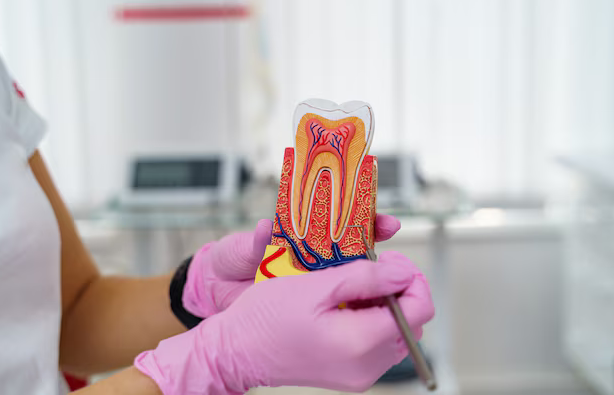Comprehensive Guide to Fatty Liver Disease Treatments: Lifestyle Changes to Medical Interventions

Introduction
Fatty liver disease has emerged as a significant health concern globally, with its prevalence on the rise due to lifestyle factors such as obesity, poor diet, and sedentary habits. As a condition characterized by the accumulation of fat in the liver, fatty liver disease can lead to inflammation, scarring, and liver damage if left untreated. Fortunately, various treatment options are available to manage fatty liver disease and improve liver health. In this comprehensive guide, we explore the diverse array of fatty liver disease treatments, including lifestyle modifications, dietary changes, medications, and emerging therapies, to empower individuals in their journey towards better liver health.
Understanding Fatty Liver Disease
Types of Fatty Liver Disease
- Non-Alcoholic Fatty Liver Disease (NAFLD): The most common form of fatty liver disease, NAFLD occurs in individuals who do not consume excessive alcohol. It ranges from simple fatty liver (steatosis) to non-alcoholic steatohepatitis (NASH), characterized by inflammation and liver cell damage.
- Alcoholic Fatty Liver Disease (AFLD): Resulting from excessive alcohol consumption, AFLD encompasses a spectrum of liver conditions, including fatty liver, alcoholic hepatitis, and cirrhosis.
Causes and Risk Factors
- Obesity: Excess body weight, particularly abdominal obesity, is a significant risk factor for fatty liver disease.
- Insulin Resistance: Insulin resistance, often associated with obesity and type 2 diabetes, contributes to fat accumulation in the liver.
- High Blood Lipids: Elevated levels of triglycerides and cholesterol in the blood can promote fatty liver disease.
- Poor Diet: Consumption of a diet high in processed foods, sugars, and unhealthy fats increases the risk of fatty liver disease.
- Sedentary Lifestyle: Lack of physical activity is associated with a higher incidence of fatty liver disease.
- Genetics: Genetic factors may predispose individuals to fatty liver disease, although lifestyle factors play a significant role.
Fatty Liver Disease Treatments
Lifestyle Modifications
- Weight Loss: Achieving and maintaining a healthy weight through a combination of diet and exercise is the cornerstone of fatty liver disease treatment.
- Regular Exercise: Engaging in regular physical activity helps burn excess fat, improve insulin sensitivity, and reduce liver inflammation.
- Healthy Diet: Adopting a balanced diet rich in fruits, vegetables, whole grains, lean proteins, and healthy fats while limiting processed foods and sugars is essential for managing fatty liver disease.
Dietary Changes
- Low-Glycemic Diet: Choosing foods with a low glycemic index helps stabilize blood sugar levels and reduce fat accumulation in the liver.
- High-Fiber Foods: Fiber-rich foods aid digestion, promote satiety, and support liver health by reducing cholesterol and triglyceride levels.
- Healthy Fats: Including sources of healthy fats such as avocados, nuts, seeds, and fatty fish in the diet helps reduce inflammation and improve liver function.
Medications
- Insulin Sensitizers: Drugs such as metformin and thiazolidinediones (TZDs) may improve insulin sensitivity and reduce liver fat accumulation in individuals with fatty liver disease.
- Antioxidants: Antioxidant supplements such as vitamin E, vitamin C, and selenium help reduce oxidative stress and inflammation in the liver.
- Omega-3 Fatty Acids: Fish oil supplements containing omega-3 fatty acids have anti-inflammatory properties and may benefit individuals with fatty liver disease.
Medical Interventions
- Bariatric Surgery: Weight loss surgery may be considered for individuals with severe obesity and fatty liver disease who have not responded to lifestyle modifications and medications.
- Liver Transplantation: In advanced cases of fatty liver disease leading to liver failure, liver transplantation may be necessary to replace the damaged liver with a healthy donor organ.
Emerging Therapies
- Pharmacological Agents: Several drugs targeting specific pathways involved in fatty liver disease are being investigated in clinical trials, offering potential new treatment options in the future.
- Gene Therapy: Gene-based therapies aimed at modifying gene expression and metabolic pathways involved in fatty liver disease hold promise for future treatment.
Integrative Approaches
- Acupuncture: Acupuncture, a traditional Chinese medicine practice, may help improve liver function, reduce inflammation, and alleviate symptoms associated with fatty liver disease.
- Mind-Body Practices: Stress-reducing techniques like yoga, meditation, and deep breathing exercises can help lower cortisol levels, promote relaxation, and support overall liver health.
Monitoring and Follow-Up
Regular monitoring and follow-up with healthcare providers are essential for assessing treatment effectiveness and preventing disease progression. This may include:
- Liver Function Tests: Blood tests to monitor liver enzymes and assess liver function.
- Imaging Studies: Imaging techniques such as ultrasound, MRI, or CT scans may be used to evaluate liver fat accumulation and monitor changes over time.
- Liver Biopsy: In some cases, a liver biopsy may be performed to assess the severity of liver damage and guide treatment decisions.
Conclusion
Fatty liver disease is a complex condition that requires a multifaceted approach to treatment, including lifestyle modifications, dietary changes, medications, and medical interventions. By addressing underlying risk factors and adopting healthy habits, individuals can effectively manage fatty liver disease and improve liver health. Integrative approaches, such as herbal remedies, acupuncture, and mind-body practices, may complement conventional treatment and support overall well-being. Regular monitoring and follow-up with healthcare providers are essential for evaluating treatment progress and preventing disease progression. With a comprehensive treatment plan tailored to individual needs, individuals with fatty liver disease can take proactive steps towards better liver health and overall wellness.
Also Read – How to Multitask Like a Pro with a 2-in-1 Laptop









